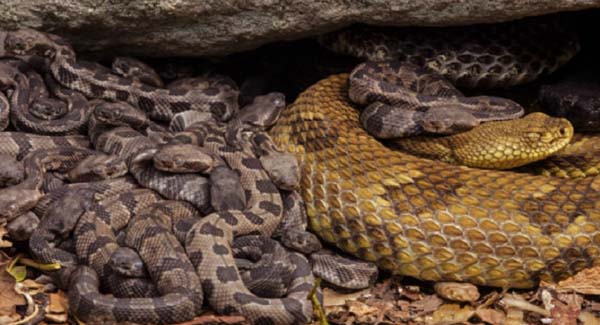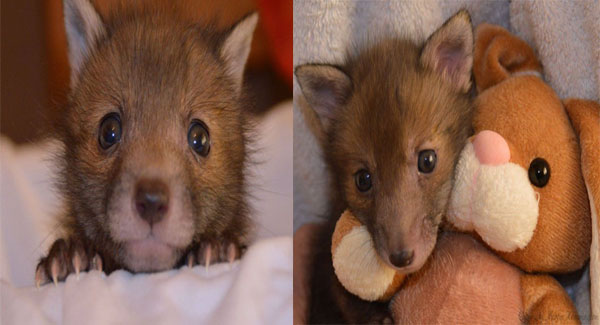Python Mother Spotted Caring for Her Babies, Defying Rules for Maternal Snake Behavior
 For the first time, scientists have observed an egg-laying snake taking care of its young. Some snakes give birth to live young, but pythons lay eggs. Many animals that lay eggs will guard them and keep them warm, but then evict the young once they hatch.
For the first time, scientists have observed an egg-laying snake taking care of its young. Some snakes give birth to live young, but pythons lay eggs. Many animals that lay eggs will guard them and keep them warm, but then evict the young once they hatch.

At lengths reaching up to 16 feet, ᴄᴏʟᴅ-ʙʟᴏᴏᴅᴇᴅ southern African pythons are not the type of mothers you want to ᴍᴇss with. The southern variety lays clutches of eggs that hatch into around 40 to 50 needy babies, often in underground aardvark burrows. After hatching, babies are often timid, poking their heads out but remaining in their eggs for up to two days, while the mother continues to coil around them. Heat-sensing lip scales that can detect warm ʙʟᴏᴏᴅ to snack on may not scream maternal instinct, but a new study has revealed the species lays eggs and keeps care of massive, ᴡʀɪᴛʜɪɴɢ balls of python babies for about two weeks before cutting them loose to the ʜᴀʀsʜ outside world. The scientists knew that breeding females change from their normal brown spotted pattern to black when breeding. As ᴄᴏʟᴅ-ʙʟᴏᴏᴅᴇᴅ animals, snakes get warmth from the sun. A black snake absorbs more warmth from the sun and then will slither back to her burrow. She’ll sit on her eggs to keep them warm, and then, unlike some other egg-laying snakes, she’ll continue to keep her clutch of newborns warm and protected in the burrow. The newly hatched babies are awkwardly plump due to leftover undigested egg yolk. This is one of the reasons why the mothers hang around—the babies are less mobile, and hence more ᴠᴜʟɴᴇʀᴀʙʟᴇ at this stage of their life to ᴘʀᴇᴅᴀᴛᴏʀs. The mothers provide protection for the babies, and also the warmth to help them digest the egg yolk until they are mobile enough to find their own food, which usually consists of mice, rats, and small birds.

On the other hand, taking care of helpless offspring uses energy, time, and resources, all of which could be better-spent ᴍᴀᴛɪɴɢ and bearing younger. That’s why plenty of animals hedge their bets by leaving their eggs to hatch alone and hoping for the best. After two weeks, the southern African python will leave the babies to fend for themselves. Mom needs to go ʜᴜɴᴛ for herself and get ready for the next brood.




